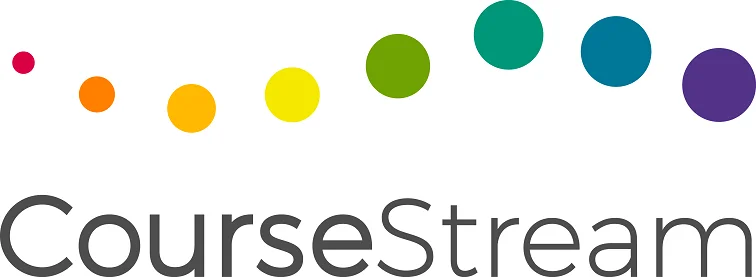


Why Study this Adolescent Psychology Course?
This online adolescent psychology course is much more than understanding teens, how they think, and why they do what they do, it’s that and much more. This course will make it easier for one to understand, comprehend and help someone during adolescence to understand what’s happening to them physically, intellectually and emotionally.
Study Teenage Psychology Online
- Understand the behaviour and theory behind working and living with adolescents.
- Develop an understanding of the changes that adolescents go through during their teenage years.
- Study with the support of experienced and highly qualified tutors.
- Study in your own time and at your own pace.
Adolescence is a time between being a child and being an adult. Over this time, there are many physical and psychological changes (eg. in relation to sexuality, physiology, emotions, moral perception, self-esteem, etc). Adolescence can be difficult both for the adolescent, and for people interacting with them (family, friends, professionals etc). morally during the adolescent period.
Course Aims:
- Explain the theories of child development in relation to adolescents.
- Describe life crises in relation to adolescents.
- Describe the physical changes that occur in puberty.
- Determine the intellectual changes that occur in adolescence.
- Describe emotional development that occurs during adolescence.
- Discuss sexuality during adolescence
- Describe social development that occurs in adolescence.
- Explain the theories of moral development in relation to teenagers.
- Discuss the links between adolescence and delinquent activity such as crime.
- Explain changes that occur moving from adolescence to adulthood.
Course Structure
There are 11 lessons in this course:
- Disorders Usually First Diagnosed in Infancy
- Criteria for Determining Abnormality.
- Diagnostic and Statistical Manual of Mental Disorders.
- Childhood Disorders.
- Attention Deficit Hyperactivity Disorder.
- Conduct Disorder.
- Mental Retardation.
- Asperger’s Disorder.
- Stereotypic Movement Disorder.
- Normal Functioning.
- Depression in Childhood.
- Anxiety Disorders.
- Types of Therapy: Adlerian, Behaviour, Existential, Gestalt, Person Centred Therapy, Psychoanalysis, Rational Emotive, Reality Therapy, Transactional.
- Delirium, Dementia, Amnesic and Other Cognitive Disorders
- Types of Cognitive Disorders.
- Delirium.
- Dementia.
- Types of Dementia.
- Alzheimer’s Disease.
- Comparing Dementia and Delirium.
- Amnesia.
- Cognitive Disorder NOS.
- Pseudo Dementia.
- Research Methods in Biopsychology.
- Substance-Related Disorders
- Scope and Nature of Substance Abuse.
- Reasons for Using Drugs.
- Substance Dependence.
- Intoxication and Withdrawal.
- Alcohol Dependence and DT’s.
- Substance Dependence.
- Substance Abuse.
- Drug Misuse.
- Classes of Drugs.
- Amphetamines.
- Cocaine.
- Crack.
- Opium and Heroin.
- LSD.
- Other Drugs, Steroids, Ritalin, Inhalants, etc.
- Risks with Specific Drugs.
- Older Adults Susceptible to Prescription Misuse.
- Schizophrenia and Other Psychotic Disorders
- Scope and Nature.
- Psychosis.
- Treating Psychosis.
- Schizo-affective Disorders.
- Delusional (Paranoid) Disorders.
- Onset of Schizophrenia.
- Symptoms of Schizophrenia
- Treating Schizophrenia.
- Schizophrenia and Violence.
- Biology of Schizophrenia.
- Antipsychotic Medications.
- Psychosocial Treatments.
- Role of the Patients Support System.
- Mood Disorders
- Depressive Disorders.
- Determining Type of Depression.
- Unipolar Disorders and Bipolar Disorders.
- Risk Factors for Depression.
- Men and Depression.
- Diagnostic Evaluation and Treatment.
- Types of Treatment.
- Anxiety Disorders
- Scope and Nature.
- Anxiety Symptoms.
- Generalised Anxiety Disorders.
- Phobic Anxiety Disorders.
- Panic Disorder.
- Treatments – Intervention, Drugs, etc.
- Post Traumatic Stress Disorder.
- Somatoform, Factitious, and Dissociative Disorders
- Somatisation Disorder.
- Conversion Disorder.
- Pain Disorder.
- Hypochondriasis.
- Body Dysmorphic Disorder.
- Factitious Disorders: Types, Symptoms, Causes, Diagnosis.
- Munchausen’s Syndrome.
- Dissociative Disorders.
- Psychogenic Amnesia.
- Psychogenic Fugue.
- Dissociative Identity Disorder.
- Depersonalisation Disorder.
- Sexual and Gender Identity Disorders
- Scope and Nature.
- Hypoactive Sexual Disorder.
- Sexual Aversion.
- Female Sexual Arousal Disorder.
- Male Erectile Disorder.
- Female and Male Orgasmic Disorders.
- Premature Ejaculation.
- Dyspareunia.
- Vaginismus.
- Secondary Sexual Dysfunction.
- Paraphilia.
- Paedophilia.
- Gender Identity Disorder (Transsexualism).
- Eating and Sleep Disorders
- Scope and Nature of Eating Disorders.
- Anorexia Nervosa.
- Bulimia.
- Binge Eating Disorder.
- Treatment Strategies.
- Research Findings and Directions.
- Treatments for Sleep Apnoea.
- Prognosis for Sleep Apnoea.
- Impulse-Control Disorders, Adjustment Disorder
- Symptoms of Adjustment Disorders.
- Risk Factors for Adjustment Disorders.
- Impulse Control Disorders.
- Intermittent Explosive Disorder.
- Kleptomania.
- Pyromania.
- Pathological Gambling.
- Trichotillomania.
- Compulsive Skin Picking.
- Personality Disorders
- Scope and Nature of Personality Disorders.
- Antisocial Personality Disorder .
- Avoidant Personality Disorder.
- Dependent Personality Disorder.
- Histrionic Personality Disorder.
- Narcissistic Personality Disorder.
- Obsessive Compulsive Personality Disorder.
- Paranoid Personality Disorder.
- Schizoid Personality Disorder.
- Borderline Personality Disorder: Symptoms, Treatment, Research, etc.
Enrol Now
- Experienced Tutor support
- Certificate sent to you
- Online study (Printed notes available)
- Self paced - no set timetable
- 12 months to complete course
From: $25.00 / week for 26 weeks
Get a Free Info Pack!











